EcoNorCam Project : Improved Agricultural Practices, Cooperatives Drive Yields
- Par Kimeng Hilton
- 04 Oct 2023 15:10
- 0 Likes
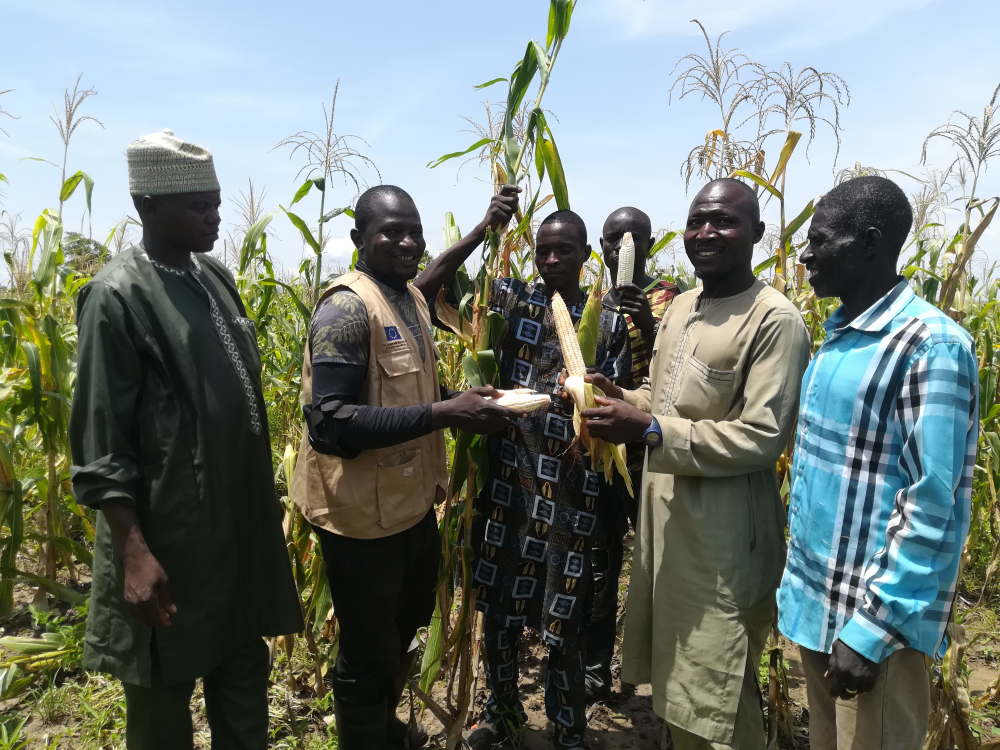
Forêts et Développement Rural, FODER association’s main component of the project, Ecosysteme du Nord Cameroun, EcoNorCam: Vers une approche intégrée du paysage, concerns assuring food security. The project is located in and around Benue National Park.
“Our budding farming cooperative has set up a revolving fund. To which members contribute a portion of their groundnut harvest to be sold and used as warranty for a micro finance loan,” explains Aissatou, leader of Dogba farming group. The group is assisted by Forêts et Développement Rural, FODER association. As part of the project, Ecosysteme du Nord Cameroun, EcoNorCam: Vers une approche intégrée du paysage. The project is located in and around Benue National Park in Benue and Mayo Rey Divisions in the North Region.
Yield-boosting Techniques
This year, Aissatou’s group cultivated just over a hectare of maize, applying compost manure and improved agricultural soil water-conserving techniques. To boost yields. Fortunately for the group, caterpillar swarms did not strike this year.
Soil Fertility, Income Generation
Takdaka group in Pani village, also assisted by FODER, comprises 14 registered members. But other villagers regularly join in its activities, giving a total of 50 people. The group runs a cooperative and a cooperative farm. On which it employs improved agricultural techniques. This year, Takdaka doubled the cultivated area from half a hectare to a hectare. While some members on their own are practising improved soil fertility methods. The group has planted cashew nut plants for income generation and agro-forestry purposes. Takdaka’s cooperative uses bio-pesticides on its farm.
The Way Out Of Poverty
“Fertilizing soils organically is the way out of poverty. We recorded greater yields from a small plot cultivated and fertilized with human urine. We plan to set up separate women’s and men’s farms next year,” said Djaorou Sali Haman, a local traditional chief and leader of Takdaka.
Cooperative Creates Community School
“Takdaka’s cooperative is doing well. Members borrow at 25 per cent interest rate. The cooperative has set up a community school in Pani - an endeavour that cost over 350,000 FCFA. The school started in the 2022-2023 academic year. Before then, our kids had to trek 10 km to and back from school in the neighbouring village of Mboukma,” the Djaorou explains.
As a result, the little ones could not stand the rigour – and thus could not go to school. Today, they have the opportunity to attend school right in their home village. Only those in senior classes still attend school in Mboukma until the community enrols for such classes. The community school – constructed in palm fronds – this academic year has an enrolment of 82 pupils with three aid teachers. They are all paid by the Parent Teacher Association, PTA, the village chief discloses.
Takdaka’s Strengths
Diallo Ako Noel, is the EcoNorCam/FODER Field Assistant/Facilitator in charge of Sports Hunting Zone 9. Located adjacent Benue National Park in Rey Bouba Subdivision, Mayo Rey Division of North Region. He says Takdaka members are united, understand themselves, can easily be mobilized and are very dynamic. “Takdaka members stand out by their openness to the innovations we introduce and how they practise on them on their personal farms,” says Diallo. “The group is any field worker’s dream group to work with!” he adds.
Climate Crisis Migrants
Another particularity about Takdaka is that membership is largely made up of climate change migrants from the Far North Region. About 80 per cent of the population of Pani community is made up of climate migrants from the Far North Region.
Garden Boosts Nutrition, Income
In Larki village, Remobe group is made up of 35 members, including 24 women. Halimatou Abbo, Remobe female leader, says the women did a garden last year, but lacked water to water it. They grew vegetables and tomatoes. They also faced the problem of stray goats eating the vegetables during the dry season. “Before the introduction of the group garden, people had to travel all the way to Tchollire, the divisional headquarters of Mayo Rey, to get fresh vegetables,” Halimatou recalls.
In addition to what members consumed, the group was able to save more than 20,000 FCFA from the sale of vegetables from their garden. Remobe has expanded its garden this year by five and hopes to make better yields.
Thanks To FODER!
Remobe president, Djibrilla Sadjo says members cultivate their individual farms without spending much. “Those who visit our farms admire the improved agricultural practices we use and replicate them in their own farms. Our group has planted a cashew nut plantation – the very first in Larki village. We are so grateful to FODER and EcoNorCam for the support. In three to five years, we hope to begin making money from cashew nuts,” Djibrilla notes.
Dynamic Group Members
Bourfane Yandji Henri is EcoNorCam/FODER Facilitator for Sports Hunting Zones 7, 8 and 14, comprising three community groups made up of women and men. These are Nanga Djoungo in Ouro Andre village, Naaral in Na’ari village and the Naaral group of Agorma. He says the strengths of all these three groups are that members are dynamic, show solidarity, and the level of understanding and acquisition of knowledge during sensitisation and training is high.
7 Functional Cooperatives
“The project has achieved much. After sensitising, mobilising and training community people, we have been able to set up 7 duly registered, functional farmers’ cooperatives. These cooperatives are putting into practice the different improved, agro-ecological farming methods such as zai, compost manure, bio-pesticides, terracing, etc,” says Bonné Guisatta, the Garoua-based head of FODER’s component of the EcoNorCam project.
Three Subdivisions Represented
The 7 cooperatives are based in 7 different communities in three subdivisions - Ouro André and Agorma in Lagdo Subdivision; Banda and Dobga in Tchollire Subdivision, and Mboukma, Pani and Larki in Rey Bouba Subdivision. All in Benue and Mayo Rey Divisions of the North Region. These groups serve as intermediaries to their communities by spreading the knowledge and skills they have acquired from the project.
Project Multiplier Effects
The 7 cooperatives have more than 70 registered members, with almost 70 per cent of them women. While the remaining 30 per cent are young men. “If we add the number of project admirers who replicate cooperative activities, we have about 200 members. All the 7 cooperatives are functional and carry out agricultural projects like cultivating, stocking and selling grain. The cooperatives are doing fairly well,” Guisatta spells out.
300 Hectares Restored
Meanwhile, EcoNorCam has so far restored about 300 hectares of degraded land, using compost manure, and to some extent, agro-forestry. The 300 hectares belong to the 7 cooperatives and the individual farms of cooperative members. Meanwhile, the putting in place of farmers’ cooperatives is going on gradually. This year, three other cooperatives will be set up, giving a total of 10 cooperatives in the 10 communities the project serves, says Guisatta.
Local People Empowered
The project has also trained 30 trainers from different communities in improved agric...
Cet article complet est réservé aux abonnés
Déjà abonné ? Identifiez-vous >
Accédez en illimité à Cameroon Tribune Digital à partir de 26250 FCFA
Je M'abonne1 minute suffit pour vous abonner à Cameroon Tribune Digital !
- Votre numéro spécial cameroon-tribune en version numérique
- Des encarts
- Des appels d'offres exclusives
- D'avant-première (accès 24h avant la publication)
- Des éditions consultables sur tous supports (smartphone, tablettes, PC)






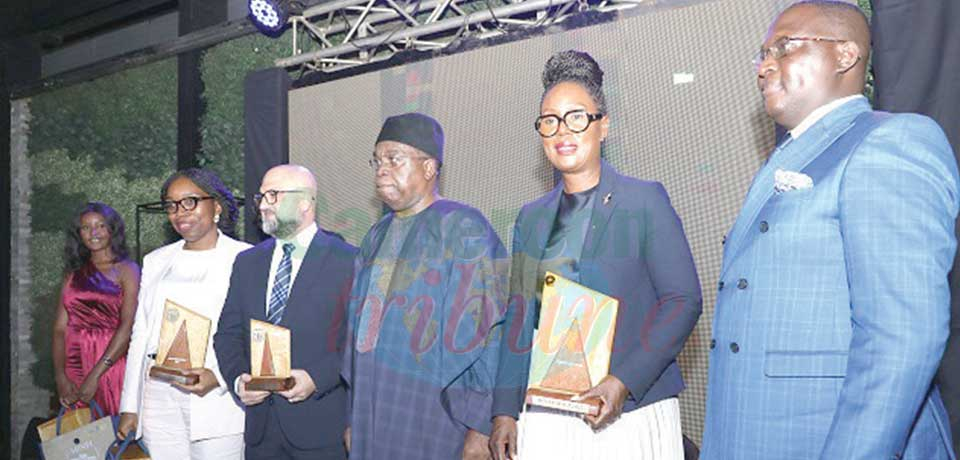
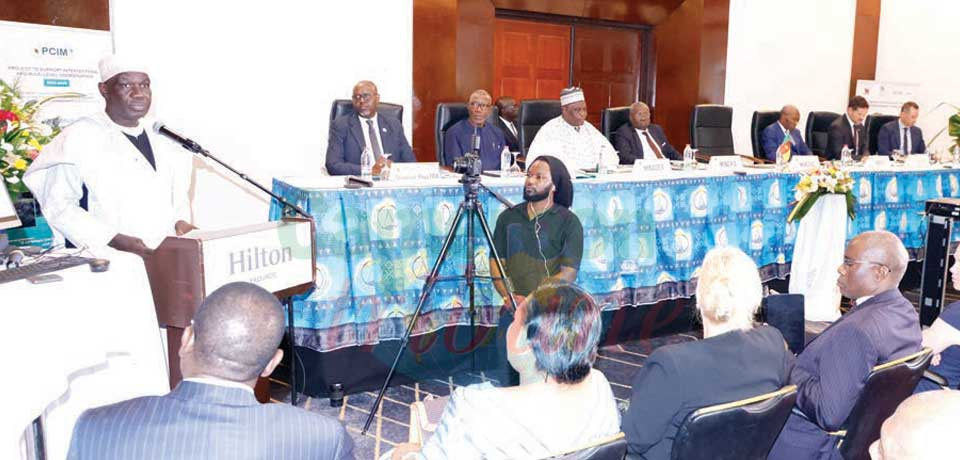
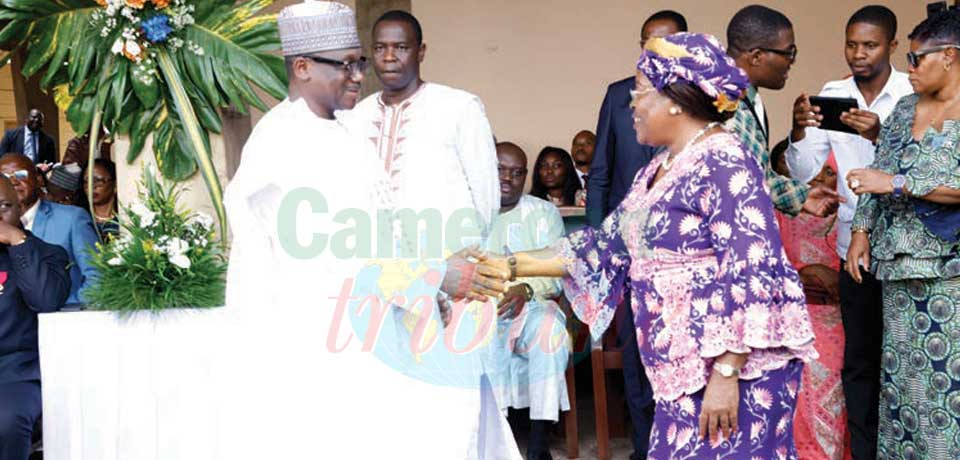
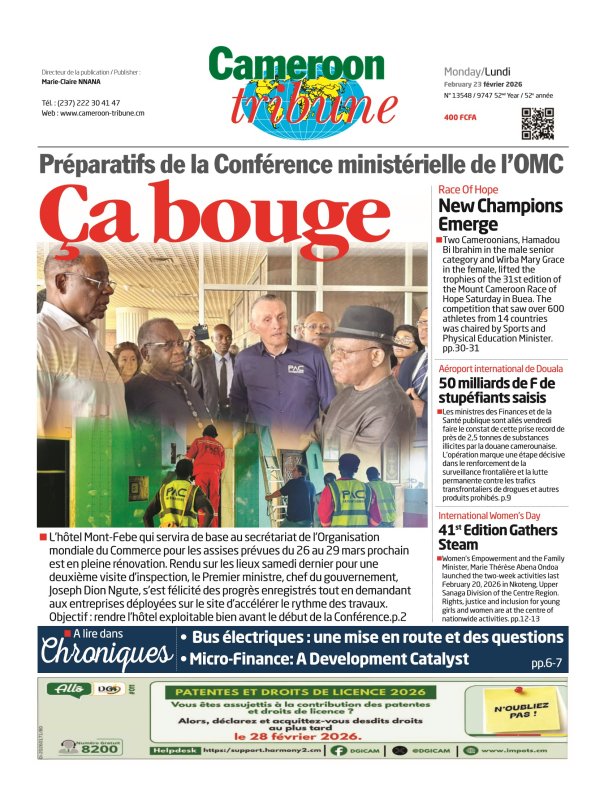




Commentaires